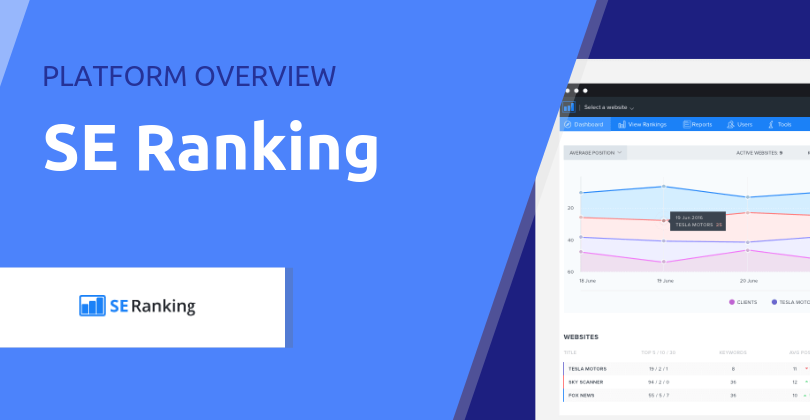Are you WordPress blogging and ready to transition from hobby site to side gig?
It’s the dream of many bloggers to be able to make a decent income from their efforts, but relatively few achieve that goal. A couple of things that all of those who have transitioned to money-making side gig have in common is that they’ve hustled to get there and they’ve put the right steps in place.
Whether you write about microbrews, fashion or home DIY, there’s potential for you to move beyond hobby to professional business. The possibilities are quite exciting for any aspiring business owner.
What do you need to know to make the move? Let’s take a look:
How do you know it’s time to transition?
Every blog or business is different, and every owner has different goals or preferences. This means that there is no “one size fits all”, definitive checklist for picking the time to transition, however we can generalise based on some common signs.
First of all, you may be ready to transition if you’re seeing consistent website traffic, particularly if that traffic is showing a willingness to take action on your website. For example, perhaps you’re getting a number of sign-ups to an email list.
The key thing to remember with any blog is that it’s about your audience. Before you can monetise, you need to successfully pull in an audience and show that you provide content they are interested in. This means having consistent monthly traffic of a large enough volume to make the sales you need.
The size of what constitutes a “large enough” audience tends to depend upon the type of blog and the level of engagement. For example, 1000 visitors per month may not be enough for a fashion blogger to make many sales, but it may be plenty for someone who sells specialist equipment and has a very niche blog.
Other KPIs people might use to determine if they’re ready include:
- Consistent income.
- Income that is scalable (you want to be able to grow sales without adding too many hours of work, as time is a finite resource).
- Consistent requests from website visitors. Sometimes your audience will request things regularly enough to justify going into business.
- Being willing and able to devote the time and resources it takes to run a business!

Monetizing your blog
If you don’t yet have a means of making money set up on your blog, then finding ways to generate revenue is a key step toward your transition from hobbyist to blogging business.
There are all sorts of courses out there, set up to teach you about making money from blogging. Some are great, but many are a waste of your time and money (created by someone whose only blogging money was made by selling a course on how to monetise a blog!). All we can say about those is to look for courses with verifiable creators and positive testimonials from real users.
You don’t necessarily need to purchase a course if you’re willing to do some research and try out a few things on your blog. In fact, most successful blogging side gigs have diversified how they earn income. One thing that often sets them apart is a willingness to try new things. Sometimes this has to be year after year, as previous money-makers dry up. (The old “link farms” are one example).
Here are some common methods for bloggers to make money:
| Monetising method: | How it works: |
| Advertising | You can either accept money directly from companies in return for displaying their banner or other ad type, or sign up with a network (such as Adsense or Infolinks). |
| Affiliate marketing | You sign up with affiliate programs and put up links to products you recommend on your website. Every time someone makes a purchase via your link, you get paid an affiliate commission. |
| Branded content | Where a company pays you to write about their product or service on your blog. |
| Coaching or consulting | People book coaching or consulting sessions via your website for something you have expertise in. |
| Courses | You write (or record) and sell a course on something that you have expertise in. |
| Ebooks | You write and sell ebooks on your website. |
| eCommerce | You set up an ecommerce store, selling goods directly from your website. |
| Influencer campaigns | These are usually via social media and more likely to happen when you have a large, consistent audience. Companies pay you as an influencer to post about their product or service. |
| Paywall content | You set up a membership aspect to your website where certain content is only accessible to paid members. |
There are a lot of potential opportunities open to you, but it’s important to clearly define which will represent your business. What will you be associated with and what is a clear “no?” It can be tempting to accept any and every opportunity that comes your way, but you need to think long term. A branded content gig that doesn’t fit well with your business or audience may do you more harm than good, even if it does pay well.
Lastly here, you’ve also got to be prepared to market your website. As a general rule, only a fraction of website traffic will buy, so the more qualified traffic you can generate, the better you will do. A hobbyist may have mostly relied upon word of mouth, but a business puts a marketing plan in place.
[tweetshare tweet=”Some of the most successful side gig blogs diversify how they earn income #WordPressBlogging” username=”wphosting”]
Creating a professional setup
An important step for moving your WordPress blog from hobby to business is to treat it seriously. This means having a professional business setup so you’re able to present yourself well to the world.
For many hobby bloggers, a professional business setup helps them to shift their mindset so that it is more conducive with doing business. It’s about doing the right things and establishing the right attitude and habits.
When you take your business seriously, your website visitors do too. What can you do to establish a professional setup? Here are some pointers:
- Establish a business. This means registering an ABN and deciding on a business structure (sole proprietorship, LLC etc.) You may want to seek advice from an accountant about your business structure.
- When setting up your business structure, consider any liability aspects and potentially any insurance that may be needed to protect you.
- Present yourself as a registered publication by joining the Australian Publishers Association. This gives you a more professional appearance to your visitors.
- Create “advertise with us” and “media kit” pages, where other businesses or press can go for information. Consider using the title “editor” for yourself in relation to your blog. These are other aspects that set you apart as a “professional publisher.”
- If you haven’t done so already, look at creating a recognisable business logo. Consider how you will present your business in any of your assets, including packaging if you will be sending out physical goods, or delivering electronic goods.
While you’re assessing your business presentation, is it time to give your site design a spruce-up? Often when blogs start out, they’re very basic, but as a business you need a more professional look.
A site re-design might include branded elements, space for ad banners and mechanisms for selling things. You will also want to have an engaging story to tell for when you launch (possibly told on an “about” page).
Optimising your WordPress website
Ensuring that your WordPress website is built to be robust as a business is an important task. If you’re at the point where you’re getting regular traffic and you’re doing activities to grow that traffic, you need a site that is fast, secure and can handle your traffic volumes. This is the point where most people find that a “free” website they set up initially isn’t going to cut it.
Part of optimising is considering how you will deliver or achieve particular key tasks for your website. You may need to set up plugins to help, for example in managing your content pipeline and in managing your customers (look at CRM plugins such as this one).
Look into your website hosting as well – will it achieve what you need? A Virtual Dedicated Server will deliver a much better experience for yourself and your visitors. Pages load more quickly and it is a reliable option in terms of handling larger traffic volumes. For example, our client Point Hacks manages over 200,000 website visitors per month using a Virtual Dedicated Server. (Check their story out – they successfully transitioned to a full time income from their blog!).
You will need to invest some time and money into transitioning to a profitable side gig, but it all becomes worth it when your side income gives you new options. As one professional blogger puts it:
“I’ve learned what every business owner at some point learns: you have to spend money to make money. In the past year alone I have purchased better web hosting, a new theme, a couple online courses, premium social media plugins and tools, and more. Sure, it stings a bit when some of those automatic payments come out of my Paypal account, but I’ve learned that it really IS worth it to spend more for quality products and services, especially since my site is now my lifeline to a full-time income.”

Final thoughts
If you find that your hobby blog is getting significant traffic and engagement, then why not try to earn some money for your efforts? While there are millions of blogs that don’t monetise, there are still countless stories of others who have put in the effort and transitioned to successful side gig.
When you’re ready to set up that side gig, invest a little time and money in getting yourself established professionally. Always consider your audience and think like a publisher to keep engaging and attracting them.
With these strategies in place, you may well have the opportunity to go beyond “side gig” to full time income from your blog. What opportunities would then open up for you?




